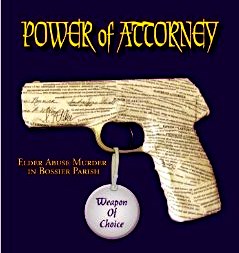
The Manitoba Supreme Court in Krawchuk v Krawchuk 2017 MBQB 47 outlined the legal obligations of a power of attorney.
Manitoba’s laws for powers of attorneys are essentially the same as for British Columbia.
The Court stated inter alia as follows:
18 The applicable law with respect to the obligation of an attorney in his or fiduciary relationship with the donor was not at issue. Some of the applicable principles can be summarized as follows:
(a) as a fiduciary, an attorney has an obligation to act in the best interests of the settler or donor and cannot permit his or her personal interests to conflict with that obligation (see Brown v. Lefebvre, 2007 ABQB 195, 419 A.R. 347 (Alta. Q.B.) at para. 20);
(b) the obligations of an attorney include keeping proper accounts of the trust estate, distinct from other accounts and preserving receipts for cancelled cheques (see Re Lefebvre at para. 21);
(c) the obligations of an attorney include producing accounts to the donor, court and any beneficiary and insuring the accounts clearly show all monies and assets received or accounted for;
(d) an enduring power of attorney requires the highest commitment of good faith, loyalty and trust (see B. (E.) v. B. (S.), 2010 MBQB 15, 248 Man. R. (2d) 260 (Man. Q.B.) at para. 50; Todosichuk v. Daviduik Estate, 2004 MBCA 191, 190 Man. R. (2d) 254 (Man. C.A.));
(e) breach of a fiduciary relationship gives rise to the widest array of equitable remedies (see Todosichuk at para. 21; Wewaykum Indian Band v. R., [2002] 4 S.C.R. 245, 2002 SCC 79 (S.C.C.));
(f) equitable remedies are always in the discretion of the court which is concerned not only in compensating a wronged plaintiff but also in upholding the obligations of good faith and loyalty (see Todosichuk at para. 22; Canson Enterprises Ltd. v. Boughton & Co., [1991] 3 S.C.R. 534 (S.C.C.));
(g) the fiduciary relationship has trust, not self-interest, at its core, and when breach occurs, the balance favours the person wronged (see Todosichuk at para. 22; Canson Enterprises at p. 543 per McLachlin J. (as she then was)); and
(h) in considering whether to grant a remedy, and if so, the nature of the remedy, the question of deterrence is often most relevant (see Todosichuk at para. 25).




